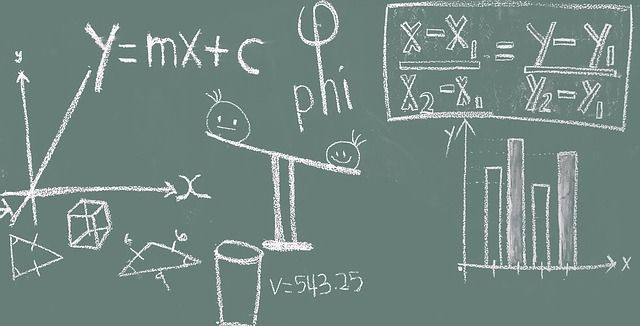Genetic Causes For Poor Math Skills: Genes May Be To Blame, But That Doesn't Mean You're Destined To Fail

Does the thought of math or having to read a map make you nervous and anxious? Your genes may be partly to blame. A new twin study from King’s College London has found that as many as one-third of all forms of anxiety have a substantial genetic component, including those related to math and spatial skills. The researchers hope that identifying children with a genetic predisposition to math and spatial-based anxiety may lead to early intervention and increase their performance in these fields.
The study, now published online in Scientific Reports, found there are several different types of spatial and math-linked anxieties, including general anxiety, and anxieties limited to only mathematics, navigation, or rotation/visualization. Having one of these anxieties did not automatically mean a participant would experience other forms. For example, individuals who experience spatial anxiety usually do not also experience general anxiety. In addition, women were slightly more likely than men to have a math or spatial anxiety, although the team believes women may just be more likely to admit to having fear and anxiety than men. The team hope these findings could have real-life applications.
Read: Are You Afraid Of Math?: Math Anxiety May Be In Your Genes
“Pinpointing specific genes for anxiety could help in identifying children who are most at risk from very early in their lives, and subsequently to intervene and prevent the development of anxiety in these different contexts," explained study co-author Margherita Malanchini in a recent statement. According to Malanchini, understanding a child’s genetic risk of math anxiety could help teachers provide them with better motivation and positive feedback, in order to help reduce this anxiety.
The study involved the experiences of more than 1,400 twin pairs who were ages 19 to 21. Other than genetics, different non-shared life experiences, such as certain friends, or extra-curricular activities, accounted for the differences behind the twins anxieties.
This is not the first study to explore the genetic components behind math anxiety. For example, in a 2014 study, researchers at the Ohio State University found that genetic factors explained about 40 percent of the individual differences in math anxiety. In addition, math anxiety is not just spread through genetics, studies have shown that children can pick up and mimic their parents' math anxieties simply through observation.
While math anxiety may not sound like a “big deal,” in reality it can have damaging repercussions. Math anxiety may make it more difficult for individuals to learn during math class, and in the long run it could discourage them from pursuing careers in STEM (science, technology, engineering, mathematics).
It’s not all bad news through. Some research has suggested that small amounts of math stress can actually help students perform better, as long as they are motivated to do so. A recent twin study found that among 262 twins, those who reported moderate amounts of math anxiety and high math motivation received the highest scores on math tests.
“Our findings show that the negative association between math anxiety and math learning is not universal,” the authors said in a press release. “Math motivation can be an important buffer against the negative influence of math anxiety.”
Source: Malanchini M, Rimfeld K, Shakeshaft NG, et al. The genetic and environmental aetiology of spatial, mathematics and general anxiety. Scientific Reports. 2017
See Also:
Math Anxiety Affects First Graders Too
Bad At Math? What The Human Brain’s Weakness For Numbers Means For Your Cognitive Health
Published by Medicaldaily.com



























